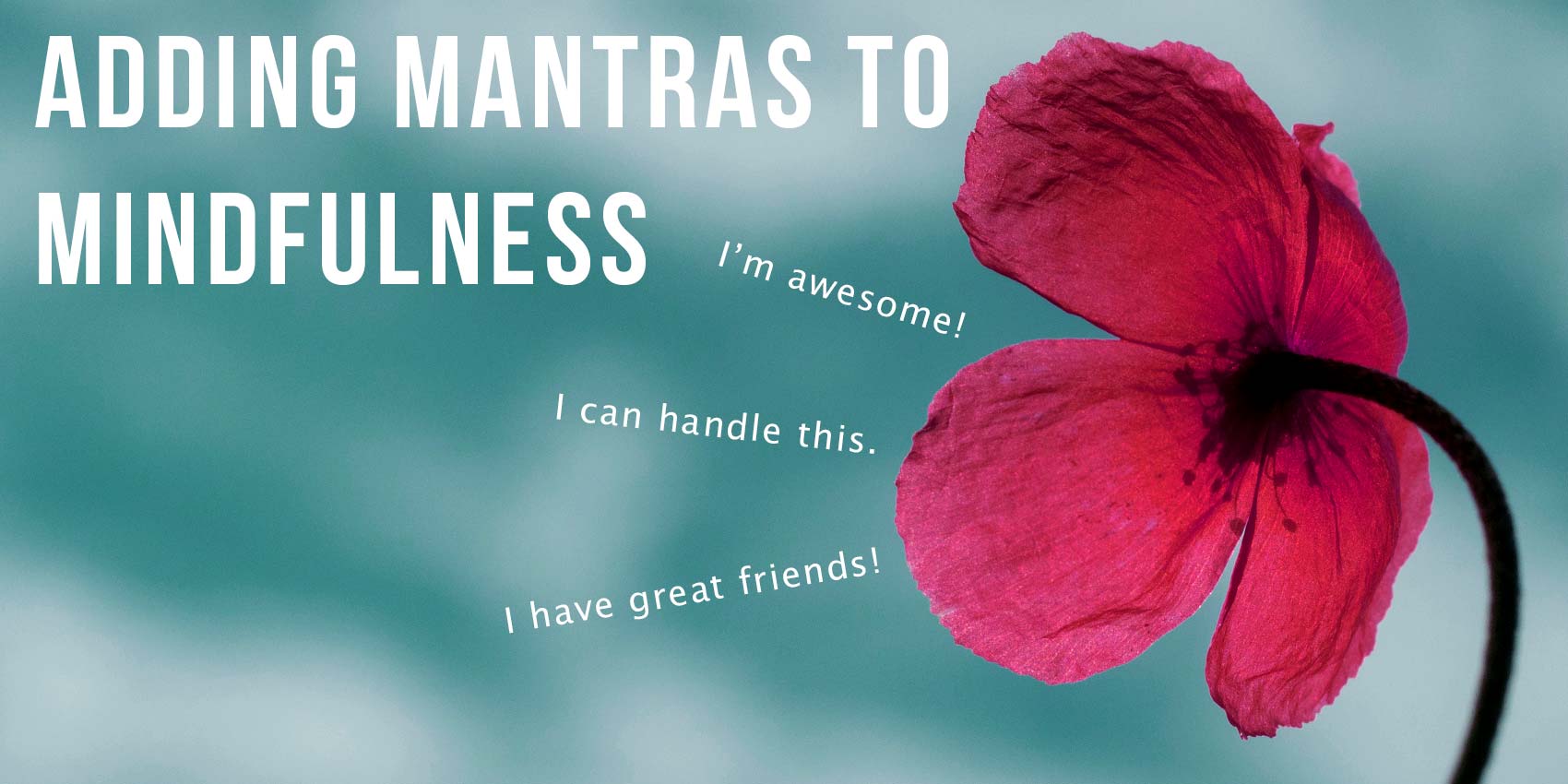03 Mar Adding mantras to boost your practice

Do you have a personal mantra? You know, something you say about yourself to yourself to pump yourself up? Like before a big game you might say, “I’ve got this. Nothing ventured, nothing gained.” Before a big test you might say, “It doesn’t have to be perfect. I just need to try my best.” Or before you text that secret crush, you may repeat, “Taking risks is how you win in life.” And, of course, you may say it over and over again to help you move through your nerves. Such short statements are “mantras” and they can be particularly helpful to get us through challenging moments.
All of us talk to ourselves (in our heads and out loud – say it out loud and you are even more likely to believe it and live by it). We say things that pump us up or bring us down. We are actually either our best cheerleaders or worst critics in our own minds. What you say in your head and especially out loud has a HUGE bearing on who you are as a person. Whoa. Yep. Hit the brakes, slow down, and read that road sign again:
What you say in your head has a HUGE bearing on who you are as a person.
What you say in your head either helps you move forward in life or blocks you from being your best self. Positive mantras, like the ones we described above, have been proven to be effective in helping people to stay focused and achieve their goals. So, as you begin to implement mindfulness in your life, you can boost that practice by adding a mantra (or two or three) to it.
Let’s think of a few right now. How can you do that? Mantras just need to be short, easy to remember, appropriate to the situation and truthful (something that you actually believe is possible). This last part is particularly important. You don’t want to say things to yourself that you don’t believe to be true. Telling yourself “I am the greatest athlete of all time!” when you feel like you couldn’t catch a raindrop in a garbage can, isn’t going to feel real to you and therefore, it is unlikely to help. But, a mantra such as “Practice is the best way to improve” can help motivate you to try again and again.
Mantras also need to be short. You need to be able to say it quickly and easily. A mantra that is 15 sentences long, just won’t be motivating nor are you likely to remember it. So when making your mantra KISS: Keep It Super Simple.
You can have one comprehensive mantra, like “I rock!” or you can have more specific ones for different areas of your life. Try looking at these four areas of your self and then try to think of a short statement that might motivate you in each area.
My physical self
My emotions
My social life
My school work
An example for each:
“My body is my temple. I love it.”
“I have nothing to fear.”
“My friends support me.”
“I work hard. Hard work pays off.”
We use mantras when we are feeling nervous, unsure, de-motivated or overwhelmed. They help us to stay present and focused on our goals. So use them when the situation calls for it (like before a big game) but also work them into your mindfulness routine. Practice your mantras when you are sitting still and focusing.




WLKHS2420
Posted at 16:19h, 02 MarchFailure only helps growth when you let it
wlkhs2411
Posted at 16:17h, 02 March“Be yourself, if people don’t like you for you, why would you want to be friends with them anyway”
wlkhs2406
Posted at 16:15h, 02 MarchYou got this. Just take it one step at a time.
wlkhs2415
Posted at 16:15h, 02 March“Everything happens for a reason”
WLKHS2413
Posted at 16:14h, 02 MarchDon’t give up. You’ll get better.
wlks2401
Posted at 16:12h, 02 Marcheverything will be okay no matter what and everything happens for a reason.
WLKHS2403
Posted at 16:12h, 02 MarchBefore a test, I tell myself that I worked hard and that I will do great on my test.